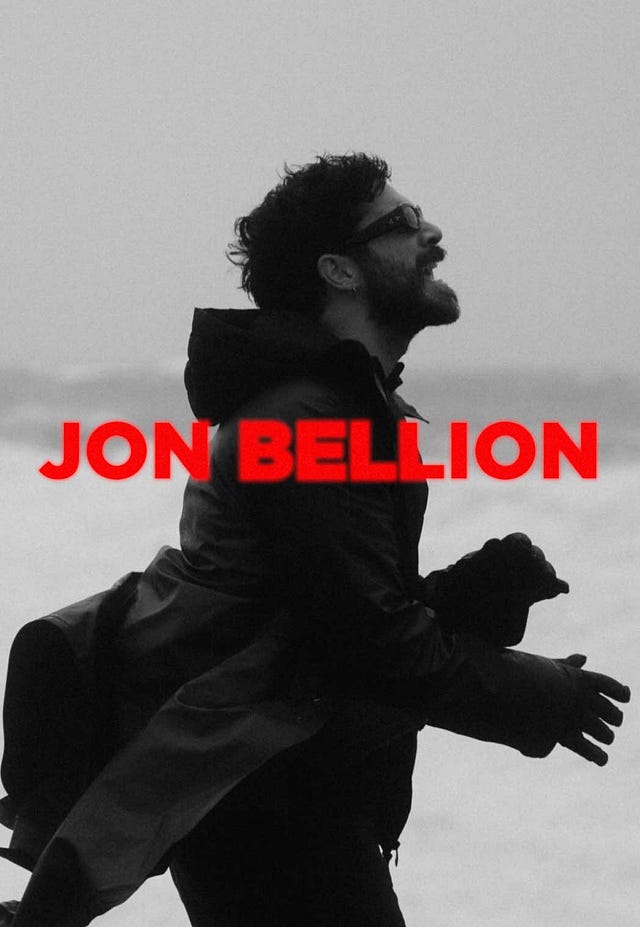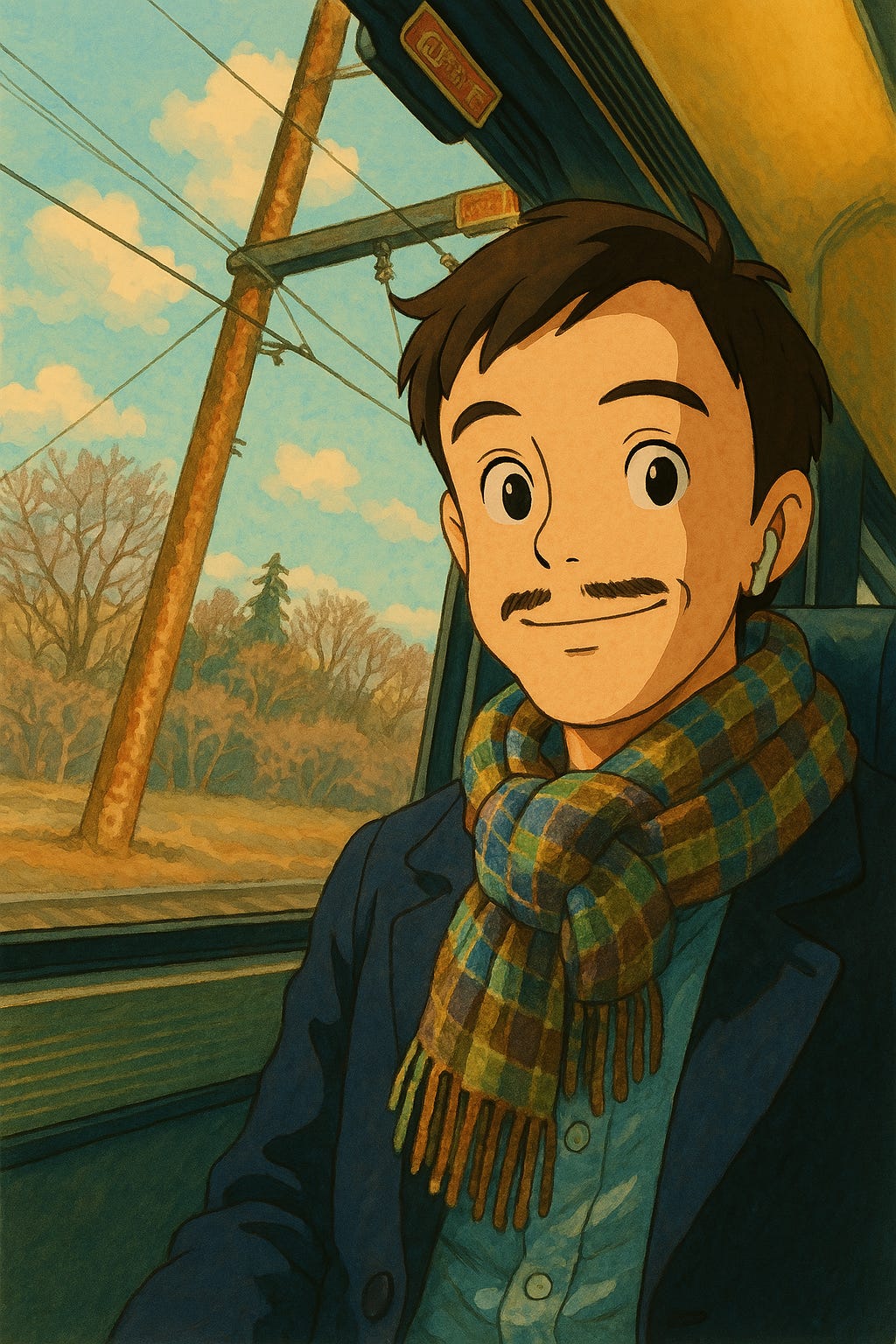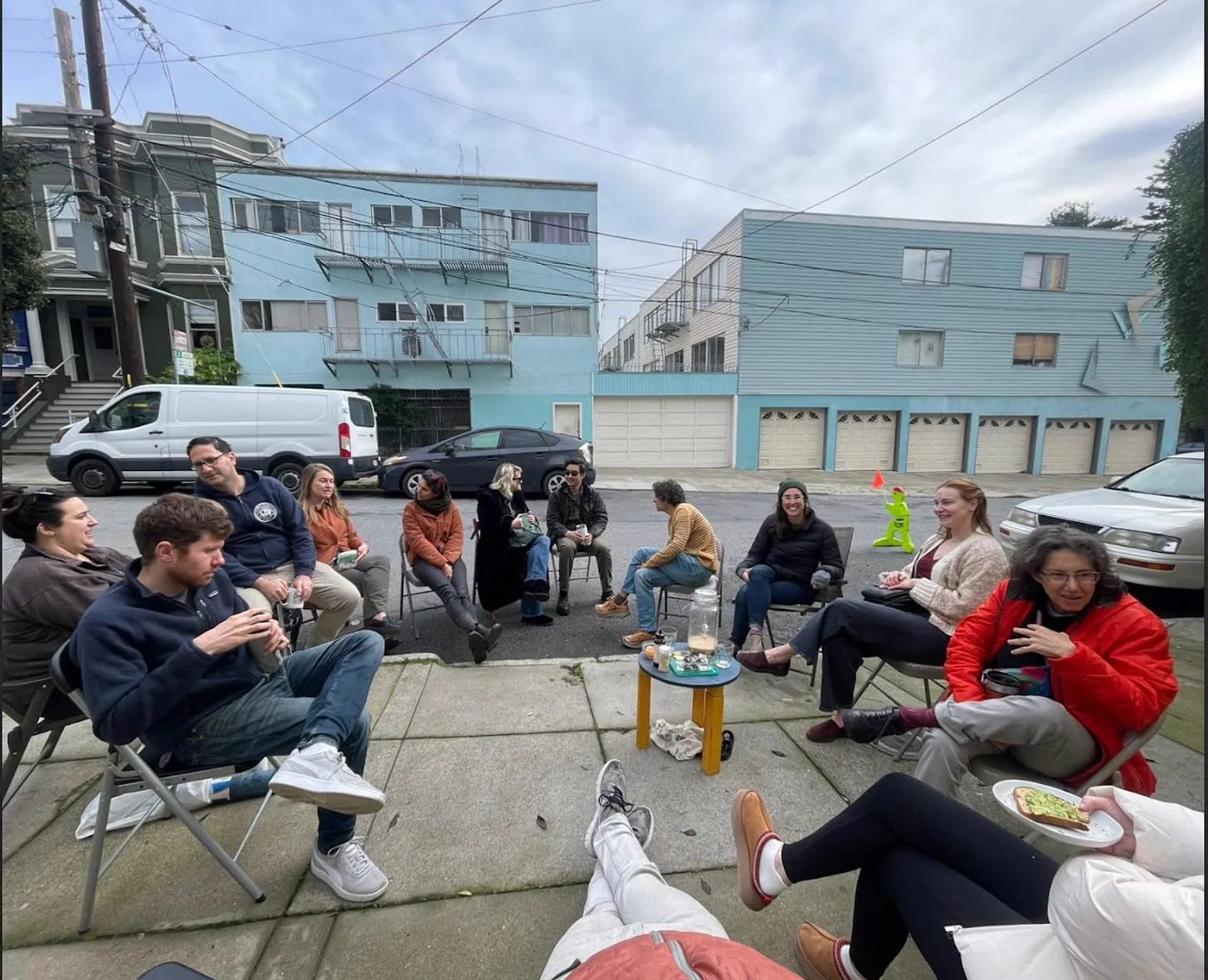From AI Ghibli to Rebuilding our Tribes
Also: Stoop Coffee, Antimemetics, and Music Industry Infrastructure
In culture, when things are more easily produced and distributed, it tends to deepen the power-law distribution: popular things get more popular and the long-tail niche gets longer. It also has one other problem: it kind of kills the middle (scenes that are/were medium-sized, like a city’s local genre scene). It’s because technology makes it easier to go broad *and* deep and the incentive to maintain the middle-ground (not so broad and not so deep) goes away. However, the inverse of this ease means that it dilutes relationships. There’s a cultural craving to not just relate to pop and mainstream discourse OR intimate niche groupchats. People are craving a rekindling of scenes that are as large as tribes, and there’s a realization that they take effort to maintain, but in doing so, it allows for the tribe to establish itself again.
The Ghibli Singularity
The web eased distribution and generative AI now risks easing any form of production. This week, with Studio Ghibli style transfers through ChatGPT, people bonded over the aesthetic connection to Ghibli films by turning their photos into that style. Me, on a train:
It went broad, making a style *very viral* overnight, pushing the aesthetic appeal of Ghibli films to an even wider audience. The popular style became more popular. But, at the same time, it was used in group chats and discords to create niche stylistic content among a few friends. It’s content that would never have been seen otherwise.
This wave of Ghibli-fication led to expected reactions: joy, freedom, self expression on one side and dissatisfaction, disgust, sadness, and anger.
Many people *can’t* create art or imagery that’s inspired by what they like. In that sense, a tool that allows people to do that gives people a tool for self-expression. Despite how this tool came to fruition, many people *did* find joy in this. To colour one’s life with a new lens, a new feeling, and a new way to see oneself.
However, this process where creation is primarily a form of self-expression and entertainment encroaches on two domains:
The territory of the creators to own their language, and through that, the intent and their network.
A continuation of the dilution of culture from deep to broad attachment.
In the first case, it’s something I’ve mentioned before a while ago with regards to NFTs, technologies can change language and when you change language, you change the ability for existing groups to maintain their relationships. If it gets easy to take photos and become a photographer, it changes the industry and network of people who were photographers before the advent of digital photography. If it gets easy to make art, it makes ‘artists’ of people who never were artists. And so, the identity of the ‘artist’ gets challenged. This new cohort is primarily seen as a threat and are not trusted because they never showed enough intent to be an ‘artist’ based on the previous definitions and process required.
On the one side it’s gatekeeping, but it’s also a desire to maintain and shield a group’s ability to connect with each other. The pre-AI artists now require extra effort on top of their own pre-AI processes to discern intent from newcomers. It muddies the way they communicate among themselves. One can connect with other people by sharing the same background, and in the case of the creative industries, a lot does not need to be said based on the perception of the process required to bring things to fruition. If you can’t determine a person’s process anymore, you don’t know if you share the same history, and thus you are left a bit more misunderstood.
It’s a collapse and deterioration of existing networks and intent. It’s an old tale, unfortunately. This is not new. Technology has always found a way to rewire existing relationships and it can be painful. It’s grief because networks lose themselves or have to work harder to maintain what they had.
In the second case, mass proliferation of AI generated media (“slop”), especially when it mimics existing works, can cause people’s relationship to those works to dissolve and thus the power of that feeling. That too, is grief.
my problem is that its mere existence has caused friction with my brain and the cherished memories that i have, with the small things that i enjoyed. a part of me enjoys these images too, but another part of me, perhaps a more foundational part of me, is lost and adrift.
ive lost something sacred. who am i? what makes me special? is it all constructs? is there just a formless, nameless blob at the bottom of the constructs that represents me? doing the deconstructing to find the blob has been fun, but ive been doing it on my own for the most part. now, i feel that im getting deconstructed by reality, without my consent. ive lost something sacred.
In my own life, for example, there’s a handful of songs that so perfectly capture a feeling for me that I don’t want to listen to it. I want to ration it so I can maintain my relationship to that feeling. Rationing media can help maintain our connection to it. It changes our attachment to media from deep to broad.
Deep connections to people are rare, immensely powerful, and speak to complex feelings. Like, if I find another Afrikaner who lives in the US and happens to share a love for Beck and White Lies, it’s rare, because those things define my history. If you go niche, deeply niche, like admiring a painting of some obscure Fauvist artist, and you find others who do, you don’t have to speak as many words. The culture does the speaking for you.
When we take that and make it broad, to with AI, jump the shark and en-masse style transfer Ghibli, that connection now becomes similar to the joy of singing a number one pop song alongside people in a club. Or it’s talking about the MCU or the latest HBO TV show. It’s the joy of the crowd, bonding as many strangers. But, when everyone likes something, it’s shallow, and not in a derogatory manner. It’s not bad, but the loss of the deep to the broad is a one-way train.
This is a trend that started happening prior to generative AI. The collapse of the friction of distribution meant that we’re just having a cultural economy with a stronger power-law distribution. The big winners are bigger and the long-tail is much, much longer. And there’s very little people in the middle who just get by. Niche isn’t gone. Tiny niches are more numerous than ever. But, mid-size niche is gone. It’s the self-sustaining local band scene. It’s the indie films that don’t need to attach a cast with at least hundreds of thousands of Instagram followers. It’s record labels taking chances on unknown misfits. They’re gone.
But, I don’t think it’s all so gloomy. Generative AI is an act of the broader underlying trend that started around the turn of the century with the web and the resulting rewiring of distribution. First we made everything available instantly, and now anyone can make (nearly) everything (soon)? What culture will matter? Will it maintain this warped power-law distribution, forever?
I don’t think so because culture is ultimately a way for people to connect with each other, to say things they can’t. The loss of the mid-size scene is the size of a tribe. We’ve given up our scenes to platforms, algorithms, and the web, and now in turn, they’ve started to betray us. Everyone’s lost something due to the shifting sands of a platform changing. Generative AI just accelerates it. It’s not that AI will go away, but what will replace algorithmic culture is culture that has humans at its anchor. It’s where the human medium is the human message.
The signs are there. It’s podcasts and musicians like Cindy Lee and Jon Bellion.
Cindy Lee originally released the album in-full like this on YouTube and through a donation-only page on a geocities copy.
Jon Bellion launched a new song after six years through a blurry hard to type Instagram URL that pointed to an unskippable 14-minute video.

 Tiktok failed to load.
Tiktok failed to load.Enable 3rd party cookies or use another browser
Another example comes from research from Shagun Singh after studying successful artists:
I would add that Instagram’s popularity with artists seems to be declining. Being constantly required to create content to feed the algorithm seems to be taking a toll on artists. As artists look for other platforms, in-person networking seems to rise. Other than my disclaimer about Instagram, many other things I mention in this post still stand.
It’s this sense that people want some friction in the sense that paying cover for a gig gets you into a room of people who are like you. If it’s too easy, ironically, it makes it harder to connect. And over time, this opportunity cost rises. Look at how popular run clubs have become because (in part) people are tired of swiping on dating apps. At some point, the opportunity costs don’t make sense anymore and people would rather support culture and a community that’s initially a bit hard, knowing that a connection with others wait on the other side. Technology gave us profound access but we also gifted our agency away. And now, those muscles have atrophied.
Ghibli-fication isn’t going to go away (fortunately or unfortunately). It’s not saying that creators should embrace that in their process (it’s up to them), but I think the energy against it might be better suited in relearning how to rebuild networks that are resilient again to technology’s ability to rewire our relationships.
Bonus Content!
✍️ Writing - Novel #2
I’m about 90% done with the second draft. 😱 I need to do another read through to see if it all hangs together properly. The goal with this draft is to get it to a point where I can send it some friends to read and I’ll likely get to that point in the next week or two. I printed a test copy through Lulu.com to see if it’s a great platform to use to print and send some copies to people. I’ll report back and hope to reveal the book once I have a physical copy in my hand. Took me about 20 months of on and off writing to get here (having started in June 2023) and I’m quite happy! Still a good amount of work to do, but excited!
🏃♂️ Walking
Prep continues for my big walking trip… I’ll share more in a few weeks. 👀
📺 Watching - White Lotus
I’m deliberately not starting any TV shows because of my impending walking trip. And writing and packing/planning has taken up all my time. So all I’m watching is White Lotus (and enjoying it a lot)! My media consumption has been quite slow. Haven’t gamed or read a book in a while. Life’s been a bit different lately.
💾 Links!
Stoop Coffee
Speaking of rebuilding our tribes, I loved this experiment in San Francisco where a couple invigorated their neighbourhood by simply having their coffee on the street every once in a while.
Antimemetics
Nadia’s new book looks spectacular. While I’m a fan of SCP, I haven’t read qntm’s breakout “There is No Antimimetics Division” (which is seeing a rewrite and re-release this year), a non-fiction take on ideas that resist spreading sounds interesting.
A Decade of Music Tokenization
The back-end of the music industry remains, to me, hilariously obtuse. Slow and resistant to change. I’m glad people keep picking up that fight, chipping away at it to modernise it. I remember when we started with music + blockchain experiments in 2015, I remember saying a lot: we don’t really know how we’ll get there, but 10 years from now, we can’t imagine that how the music industry is wired, won’t look a lot more streamlined and efficient. And well, it’s been 10 years and it’s nowhere near where it could be.
But what's most fascinating about revisiting this proposal isn't just its optimism – it's how precisely it identified the music industry's fundamental challenges that persist today. The same problems that inspired Dryhurst's call for tokenization continue to plague artists: delayed royalty payments, opaque revenue splits, limited access to financing, and centralized platforms that extract rather than share value.
🎶 Music
En Attendant Ana - Wonder
A beautiful track on repeat this week! There’s something about the lyrics that hit me.
“I’m a good human being, my mama said
I hope she’s right”
It speaks to our drive to be better, kinder people and the fear that sometimes we aren’t.
Take care friends. See you next week! Hope a lovely sunset graces you.
Simon



